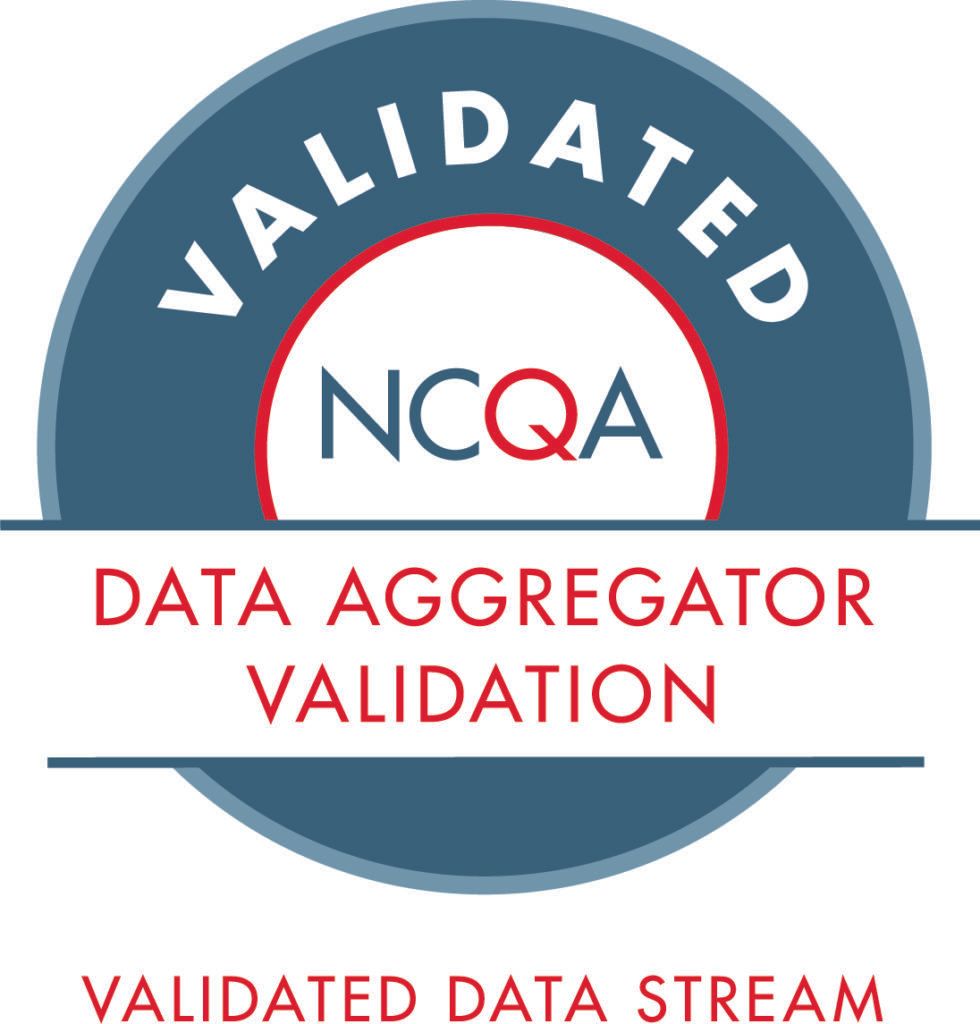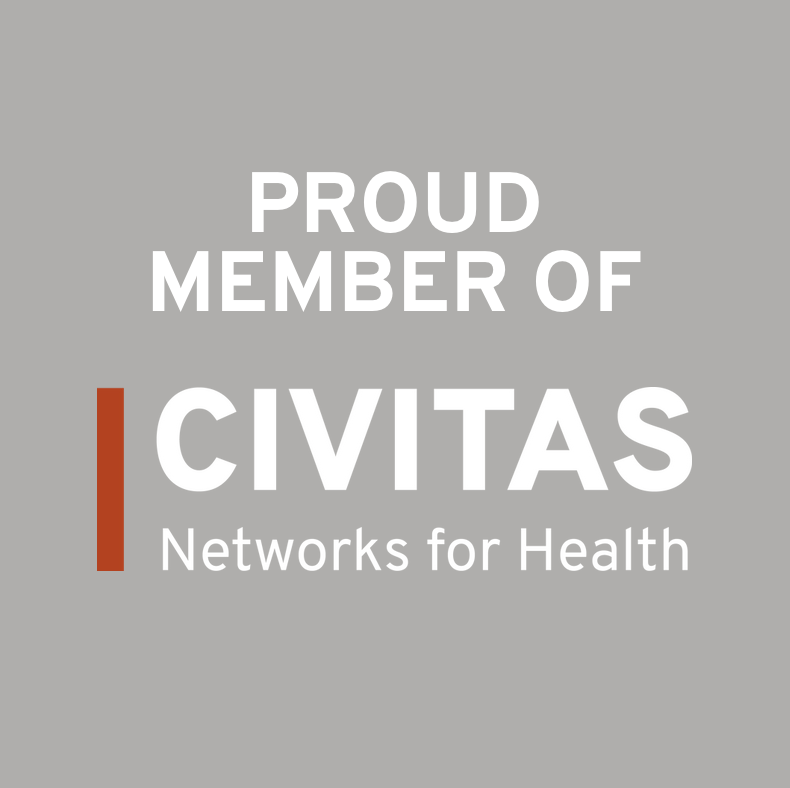MNCM 2021 Annual Conference
Pre-Conference Agenda
Conference Agenda
Continuing Education
Speakers
Become a Sponsor
Sponsors
Exhibitors
Welcome
Julie Sonier, MPA, President and CEO, MN Community Measurement
Julie Sonier, MPA, President and CEO of MN Community Measurement will welcome attendees and highlight MNCM’s vision for engaging the community to accelerate progress on improvement of mental health outcomes in the region – and share how the engagement of stakeholders at the Mental Health Summit will help to catalyze improvement goals for 2021.
Learning objectives:
- Describe the most recent data on depression outcomes in Minnesota (reflecting pre-pandemic state).
- List activities under way to bring the community together to improve depression care in Minnesota.
1:00–1:45 p.m.
From Measurement to Action: Leveraging Data to Build the Bridges to Better Mental Health
Dan Gillison, CEO, National Alliance on Mental Illness (NAMI)
The opening keynote presentation will provide critical context on the state of mental health and mental health care in the United States and the region, highlight the reasons why now is the time for the community to take action, and provide key insights on how stakeholders can leverage data to inform action and achieve better outcomes. The presentation will include an overview of current trends in mental health nationally and regionally and highlight the latest data on mental health care outcomes.
Learning objectives:
- Describe current trends and the latest data on mental health care outcomes nationally and regionally.
- List examples of how NAMI, American Psychiatric Association (APA), and other leading organizations are leveraging data to inform action and improve outcomes.
1:45–2:30 p.m.
Strategies for Success: Minnesota Providers’ Experiences in Improving Depression Care
Deb Krause, Regional Strategic Advisor, Minnesota Health Leadership Council
Angeline Carlson, PhD, Chief Manager, Data Intelligence Consultants
MN Community Measurement is excited to offer new insights on practices Minnesota health care providers are using to overcome barriers and successfully improve outcomes in depression care. This session will highlight new information gathered through a best practices study funded by a prestigious Eugene B. Washington Community Engagement Award from the Patient Centered Outcomes Research Institute (PCORI). The session will highlight best clinical practices and other significant factors associated with the successful care management for persons diagnosed with depression, as well as common challenges and potential opportunities to improve care.
Learning objectives:
- Identify key factors associated with successful care management for persons diagnosed with depression.
- List common challenges and barriers to implementing the collaborative care model.
- Identify opportunities to make progress on improving depression care and patient outcomes.
2:30–2:45 p.m.
Break and Exhibits
2:45–3:45 p.m.
Community Dialogues to Advance Improvement
Central/NE Minnesota Panelists: TBA
West/NW Minnesota Panelists: TBA
Twin Cities Metro Panelists: TBA
Southern MN Panelists: TBA
Regional breakout sessions will provide the opportunity for community stakeholders to reflect on the information presented and discuss how it relates to the nuances that exist within their local areas. The community dialogues will bring together health care payers, providers, purchasers, and other community stakeholders to build relationships and identify key strategies and action steps that could be taken in the region to accelerate improvement of mental health outcomes.
Learning objectives:
- Understand factors influencing mental health care and outcomes in the region.
- Identify action steps that could be taken in the region to accelerate improvement in mental health outcomes.
3:45–4:15 p.m.
Moving Forward Together – From Ideas to Action
Darcy Gruttadaro, JD, Director, Center for Workplace Mental Health, American Psychiatric Association Foundation
The closing session will synthesize the major themes and strategies that emerged throughout the summit, including reports from each region on the action steps identified to accelerate improvement. Attendees will hear from national experts on how and why Minnesota is uniquely positioned to lead the nation in accelerating improvement in mental health outcomes, and the resources available to support each type of stakeholder – health care providers, payers, purchasers, and community members – in doing their part to drive more rapid change.
Learning objectives:
- Summarize action steps identified in regional conversations to accelerate improvement in mental health outcomes.
- Describe resources available to support health care providers, payers, purchasers, and community members in their respective roles.
4:15–4:30 p.m.
Closing Remarks
Julie Sonier, MPA, President and CEO of MN Community Measurement
Networking Hour and Exhibits
10:00–10:15 a.m.
Welcome
Julie Sonier, MPA, President and CEO, MN Community Measurement
Mark Matthias, MD, Physician Vice President, Acute Care Division, CentraCare
MNCM President and CEO Julie Sonier, and the Chair of the MNCM Board of Directors, will welcome attendees to the 12th MNCM Annual Conference, provide a recap of MNCM’s accomplishments in 2020, and discuss strategic priorities for 2021.
Learning objectives:
- Identify the different ways health care providers and payers can leverage MNCM data to support affordability and quality improvement.
- List innovation projects that health care providers and payers are collaborating on through MNCM to improve access to timely, actionable data needed to advance improvement.
SEGMENT 1: Getting from Here to There: Addressing COVID-19 Challenges and Opportunities
10:15–11:15 a.m.
Addressing Forgone Care and Adapting to the New Telehealth Landscape
Moderator:
Mark Matthias, MD, Physician Vice President, Acute Care Division, CentraCare
Panelists:
Joe Bianco, MD, Director, Primary Care, Essentia Health
Val Overton, DNP, FNP-BC, System Director of Population Health and High Value Care, M Health Fairview
Tim Hernandez, MD, Chief Executive Officer, Entira Family Clinics
2020 was a year of major disruption in health care, but also a year of rapid adaptation and transformation in how health care is delivered. The goal of this session is to begin to explore the impacts of both the COVID-19 pandemic and the rapid adoption of telehealth that came along with it on health care quality. What are health care providers seeing in their own data? To what degree are we seeing drop-offs in preventive care such as immunizations and cancer screenings, and what factors or strategies have mitigated the decline? Similarly, what do we know about impacts on the management of chronic diseases such as diabetes, heart disease, asthma, and depression, and what strategies have proven helpful?
Learning objectives:
- Describe the impacts of COVID-19 on care delivery and health care quality in 2020.
- Identify successful practices implemented by health care providers and health plans to mitigate the impacts of COVID-19 on health care quality and outcomes.
- List the opportunities and challenges associated with delivery of telehealth and identify early best practices.
11:15 a.m.–12:15 p.m.
Leveraging Data and Collaboration to Accelerate Progress on Health Equity
Moderator:
Mark Steffen, MD, MPH, Vice President and Chief Medical Officer, Blue Cross and Blue Shield of Minnesota
Panelists:
Karolina Craft, MA, CPHQ, Quality Program Manager, Minnesota Department of Human Services
Rahshana Price-Isuk, MD, Medical Director, Neighborhood HealthSource
Ghita Worcester, Senior Vice President, Public Affairs and Chief Marketing Officer, UCare
In Minnesota there are longstanding, well-documented disparities in key indicators of health and health care quality. The increased attention to racial disparities that has resulted from the COVID-19 pandemic and events such as the civil unrest surrounding the death of George Floyd is an opportunity to make meaningful progress on improving equity. This session will explore 1) what strategies key actors, including health care providers, health plans, and state agencies, are using to drive progress; 2) the role of data and measurement; and 3) the role of collaboration across stakeholders to drive improvement.
Learning objectives:
- Describe the most recent data on the state of health care disparities in Minnesota (reflecting pre-pandemic state).
- List initiatives by Minnesota payers, providers, and state government to drive systemic change.
12:15–1:15 p.m.
Break and Exhibits
SEGMENT 2: Advancing Affordability and Access to Appropriate Care
1:15–2:45 p.m.
Improving Affordability and Value in Health Care through Collaboration
Moderator:
Mary Ellen Wells, MHA, FACHE, Senior Advisor, C-Suite Resources
Speakers:
Nancy Giunto, MHA, Executive Director, Washington Health Alliance
Gabrielle Rude, PhD, President and CEO, Wisconsin Collaborative for Healthcare Quality
Panelists:
Beth Averbeck, MD, Senior Medical Director, Primary Care, HealthPartners
Josh Fangmeier, Research Director, State Employee Group Insurance Program, Minnesota Management & Budget
John Piatkowski, MD, Senior Medical Director, Physician Engagement, Medica
Affordability of health care is an issue of longstanding concern, and the need to address it is only increasing. Meanwhile, studies suggest that there are significant opportunities to address affordability by reducing what is often termed “low-value” care. This session will provide opportunities to learn from efforts in other regions to measure low-value care and to drive improvement in this area. Speakers from Washington and Wisconsin will describe their initiatives, including how they chose priorities, measurement strategies, and improvement efforts. A reactor panel of Minnesota stakeholders will discuss how these examples can inform local efforts to improve affordability and value in health care.
Learning objectives:
- Describe the most recent data available on the affordability of care in Minnesota.
- Identify strategies used in Washington and Wisconsin to advance affordability in care.
- Outline the potential to apply similar strategies to advance affordability initiatives in Minnesota.
2:45–3:00 p.m.
Break and Exhibits
3:00–4:00 p.m.
Closing Panel Discussion: Harnessing Disruption to Drive Affordability and Value
Moderator:
Julie Sonier, MPA, President and CEO, MN Community Measurement
Panelists:
Matt Anderson, JD, Assistant Commissioner Health Care and Medicaid Director, Minnesota Department of Human Services
Pat Courneya, MD, Chief Health Plan Medical Officer, HealthPartners
Jennifer DeCubellis, Chief Executive Officer, Hennepin Healthcare
The disruptions in health care delivery caused by the COVID-19 pandemic highlighted several serious issues related to how health care is financed. For example, many health care providers who are paid primarily through fee-for-service experienced major financial disruptions, while some providers with more value-based contracts experienced less financial disruption. This session will explore the opportunities and challenges regarding health care financing that have been highlighted by the pandemic. To what extent will the pandemic change the direction or momentum of the movement toward value-based contracting? What improvements in data and measurement are needed to support these changes?
Learning objectives:
- List the major disruptions that have occurred because of the pandemic and how they have altered the way care is delivered and paid for.
- Describe the opportunities these changes have presented to transform the health care system to achieve better patient outcomes, equitable care, improved affordability, and better patient experience.
- List improvements in data and measurements needed to support these changes.
4:00–4:15 p.m.
Closing Remarks
Julie Sonier, MPA, President and CEO of MN Community Measurement
CME Accreditation
This activity was planned and implemented in accordance with the Essential Areas and Policies of the Accreditation Council for Continuing Medical Education (ACCME) through the joint providership of PESI Inc. and MN Community Measurement. PESI Inc. is accredited by the ACCME to provide continuing medical education for physicians.
AMA PRA Designation Statement
PESI Inc. designated this live activity for a maximum of 8 AMA PRA Category 1 Credit(s)™ (Pre-conference 3.25 credit hours | Annual Conference 4.75 credit hours). Physicians should only claim credit commensurate with the extent of their participation in the activity.
Physician Assistants
AAPA accepts Category 1 credit from AOACCME, Prescribed credit from AAFP, and AMA PRA Category 1 Credit™ for the PRA from organizations accredited by ACCME.
Nurses
For the purpose of re-certification, the American Nurses Credentialing Center accepts AMA PRA Category 1 Credit™ issued by organizations accredited by the ACCME for attendance at structured learning activities.
Pharmacists
For the purpose of re-certification, the American Council of Pharmacy Education accepts AMA PRA Category 1 Credit™ issued by organizations accredited by the ACCME for attendance at structured learning activities.
Wednesday, February 17, 2021
Julie Sonier, MPA
Dan Gillison
Deb Krause
Angeline Carlson, PhD
Central/NE Minnesota Panelists: TBA
West/NW Minnesota Panelists: TBA
Twin Cities Metro Panelists: TBA
Southern MN Panelists: TBA
Darcy Gruttadaro, JD
Thursday, February 18, 2021
Julie Sonier, MPA
Mark Matthias, MD
Joe Bianco, MD
Val Overton, DNP, FNP-BC
Tim Hernandez, MD
Mark Steffen, MD, MPH
Karolina Craft, MA, CPHQ
Rahshana Price-Isuk, MD
Ghita Worcester
Mary Ellen Wells, MHA, FACHE
Nancy Giunto, MHA
Gabrielle Rude, PhD
Beth Averbeck, MD
Josh Fangmeier
John Piatkowski, MD
Matt Anderson, JD
Pat Courneya, MD
Jennifer DeCubellis
Speaker Bios
Speaker bios are being added as they are received.
Julie Sonier, MPA, President and CEO, MN Community Measurement

Julie Sonier joined MNCM as its President and CEO in 2017 with 20 years of experience in health care policy and reforms to improve health care cost, quality, and access. At MNCM, Julie leads a strategic focus on leveraging MNCM’s strengths as a convener and as a trusted source of data to make measurement more meaningful, timely, and actionable in ways that support better health care quality and improved affordability. Ms. Sonier’s prior experience includes leading Minnesota’s State Employee Group Insurance Program, the largest employer purchaser of health care in Minnesota; serving as Deputy Director of the State Health Access Data Assistance Center (SHADAC) at the University of Minnesota’s School of Public Health, where she worked with states across the nation on developing and implementing health care reforms to improve health care access, cost, and quality; and directing the Health Economics Program at the Minnesota Department of Health.
Dan Gillison, CEO, National Alliance on Mental Illness (NAMI)

Dan Gillison brings expertise in non-profit leadership and a passion for advocating for people with mental illness to NAMI. Before coming to NAMI, Dan led the American Psychiatric Association Foundation (APAF), where he was responsible for strategic planning, personnel management, board communications, oversight of APAF's public education programs and outreach, and formulating strategic alliances and partnerships to further APAF's mission. Prior to APAF, Gillison led County Solutions and Innovation for the National Association of Counties (NACo) where he was instrumental in repositioning the organization's programs to provide expertise in health and human services, justice and public safety.
Dan has over 30 years of experience and has previously held leadership positions at Xerox, Nextel, and Sprint. Dan holds a B.A. from Southern University and A&M College.
Deb Krause, Regional Strategic Advisor, Minnesota Health Leadership Council

Ms. Krause is the Regional Strategic Advisor to the Minnesota Health Leadership Council, a group of public and private purchasers in affiliation with the National Alliance of Healthcare Purchaser Coalitions. Council members collaborate with community stakeholders to advance the five priorities of The Path Forward for Mental Health and Substance Use including mental health parity, access to care, collaborative care, measurement-based care, and tele-behavioral health care. Previously, she was Vice President of the Minnesota Health Action Group and led the organization’s Mental Health Guiding Coalition, PCORI Eugene B. Washington Community Engagement Award, annual benefits survey, and annual leadership summit. Deb was previously a partner at Hewitt Associates and a principal at Mercer, where she provided strategic guidance to employers on their benefit plan strategy and design. Deb has a B.S. in Business Administration from Valparaiso University and an M.B.A. in Finance from the University of Wisconsin—Madison.
Angeline Carlson, BS (Pharmacy), RPh, PhD, Chief Manager, Data Intelligence Consultants

Dr. Angeline Carlson, BS (Pharmacy), RPh, PhD, is a founding principal of Data Intelligence Consultants, LLC a health services research firm located in Eden Prairie, MN. In her responsibilities as Director of Research at Data IQ, she leads research teams comprised of experienced health services researchers, senior SAS researcher programmers and statisticians. Dr. Carlson maintains an active research agenda serving clients in the health care industry, health foundations and public service agencies. She also serves as an Adjunct Professor in the College of Pharmacy and a Senior Graduate Faculty member at the University of Minnesota.
Darcy Gruttadaro, JD, Director, Center for Workplace Mental Health, American Psychiatric Association Foundation

Darcy Gruttadaro is the director of the Center for Workplace Mental Health. As director, she works with her team in developing high impact programs, resources and case studies to support mentally healthy workplaces. Our work includes collaborating with employers in raising awareness, creating mentally healthy organizational cultures, and improving access to mental health services and supports. The Center works with organizations of all sizes from Fortune 100 companies to small family owned businesses in creating effective approaches to improving the mental health and well-being of employees and their families. Before joining the Center, Ms. Gruttadaro served in multiple senior level positions with the National Alliance on Mental Illness (NAMI). Ms. Gruttadaro has expertise in expanding evidence-based practices, improving early intervention, designing insurance coverage for mental health services and building an array of effective services and supports that promote resiliency and recovery.
Mark Matthias, MD, Physician Vice President, Acute Care Division, CentraCare

After residency, Mark practiced full spectrum Family Medicine in Hutchinson for 14 years. In 2006 his career path turned into more Physician Leadership roles and he became the CMO of Mankato Clinic. This was followed by a position as CMO of Rice Memorial Hospital, and then VPMA of St. Cloud Hospital since 2011. At CentraCare, Mark also serves as the Physician VP of their Acute Division. He has been active in various organizations (VHA/Vizient, MHA, Captis) and has served on various Boards. As of January 2021, Mark is serving as the Board Chair for MN Community Measurement.
Joe Bianco, MD, Director, Primary Care, Essentia Health

Dr. Joseph Bianco is a board-certified family practice physician with Essentia Health, an integrated health system that serves northern Wisconsin, Minnesota, and Western North Dakota. He also serves as the Ambulatory Quality Leader for Essentia Health working to improve the quality of care delivered as well as addressing health disparities. He is the Chairman of the Essentia Opioid steering committee. He also helped to author the Institute for Clinical Systems Improvement (ICSI) guidelines for pain management published last year. He serves on the ICSI Opioid Oversight committee as well as the Addiction committee. He has a long-standing interest in the education of medical students and the role of the primary care physician as mentor to future family physicians and to the Duluth Family Practice Residency Program. Dr. Bianco attended the University of MN, School of Medicine and completed a family practice residency in Duluth, MN. He maintains a busy family practice in the small rural town of Ely, Minnesota.
Val Overton, DNP, FNP-BC, System Director of Population Health and High Value Care, M Health Fairview

Val Overton is a Family Nurse Practitioner and serves as System Director of Population Health and High Value Care for M Health Fairview. Val has a special interest measurement related to global health and patient engagement and activation. She was awarded the Rising Star Award-University of Minnesota School of Nursing Alumni Association 2014, and voted to Minnesota Medicine’s 2012 “100 Influential Healthcare Leaders."
Tim Hernandez, MD, Chief Executive Officer, Entira Family Clinics

Dr. Hernandez is a family physician practicing in West St. Paul, Minnesota. He attended Carleton College and then Mayo Medical School. Upon graduation he returned to the Twin Cities and finished his residency through the University of Minnesota. He is an adjunct associate professor at the University of Minnesota as well as Medical Director at Entira Family Clinics. He has served and continues to serve on many boards and committees including the MN Community Measurement Board. Hobbies include coaching football for the past 36 years.
Mark Steffen, MD, MPH, Vice President and Chief Medical Officer, Blue Cross and Blue Shield of Minnesota

As vice president and chief medical officer of Blue Cross and Blue Shield of Minnesota, Dr. Mark Steffen oversees medical management strategies that encompass the organization’s medical policies, clinical programs, community health, and health equity initiatives. He serves as the Chair of the Blue Cross Blue Shield Foundation Board and is a board member for Minnesota Community Measurement. Dr. Steffen came to Blue Cross in 2018 from Humana, where he focused on population health and value-based care. Previously, he spent five years at the Mayo Clinic as a medical director within Preventive, Occupational and Aerospace Medicine. Dr. Steffen started his clinical career at Fairview Red Wing Medical Center where he practiced rural primary care and was the medical director for employee health and wellness. He has board certifications in Family Medicine, Preventive Medicine, and Occupational Medicine. He received both his medical degree and master’s in public health from the University of Minnesota.
Karolina Craft, MA, CPHQ, Quality Program Manager, Minnesota Department of Human Services

Karolina Craft, MA, CPHQ, is the Quality Program Manager in the Healthcare Research and Quality Division at the Minnesota Department of Human Services (DHS). The Department of Human Services oversees the administration of the Medicaid program and is one of the largest purchasers of health care services in the state, providing health care coverage to over 1 million Minnesotans. Medicaid plays a critical role in ensuring access to quality of care for vulnerable populations including children, persons with disabilities, and seniors. In her previous role at DHS, Ms. Craft led quality efforts for the Medicaid value-based payment model, the Integrated Health Partnerships. Before joining DHS, Ms. Craft worked as the Manager of Policy Analysis at the American Academy of Neurology. She is a graduate of the University of Chicago.
Rahshana Price-Isuk, MD, Medical Director, Neighborhood Healthsource Clinics

Dr. Rahshana Price-Isuk is a Board Certified Family Physician devoted to bridging the gap that exists between patients and health care professionals in order to decrease health disparities in vulnerable communities and beyond. Dr. Rahshana is a trusted patient advocate and primary care expert that is passionate about bringing awareness to the impact of culture on health, and helping physicians and patients use this information to improve health outcomes. She has been serving the Minneapolis community for over 15 years. Dr. Price-Isuk is currently the Medical Director at Neighborhood Healthsource Clinics and has an active clinical practice in Northeast Minneapolis.
Ghita Worcester, Senior Vice President, Public Affairs and Chief Marketing Officer, UCare

Ghita Worcester brings more than 35 years of health care management experience to her role as senior vice president, public affairs and chief marketing officer. She provides strategic direction for marketing, business development and strategy, public relations, legislative, regulatory, provider relations and contracting, government programs, and community outreach activities. Worcester serves as a national expert and speaker in the fields of Medicare, Medicaid, and Special Needs dual-eligible programs. In 2015, Worcester was recognized with a Women in Business Award by the Minneapolis/St. Paul Business Journal, and in 2018 with a Women’s Health Leadership TRUST Courage Award.
Mary Ellen Wells, MHA, FACHE, Senior Advisor, C-Suite Resources

Mary Ellen Wells has more than 35 years of health care leadership experience. She has served as a senior executive and CEO of several independent and affiliated hospitals, clinics, and skilled nursing facilities within Allina Health, CentraCare Health, and the University of Minnesota Hospital and Clinic. Most recently, Wells served as the program director dyad leader and senior lecturer for the University of Minnesota’s MHA Program, and remains involved as an alumni and adjunct faculty member. Currently, Wells is a partner with C-Suite Resources, a company that provides market research, strategy development, and consulting services.
Nancy Giunto, MHA, Executive Director, Washington Health Alliance

Nancy Giunto serves as executive director of Washington Health Alliance, a multi-stakeholder nonprofit that offers objective reporting of progress on measures of health care quality and value, as well as a trusted forum for critical conversations about health care system improvement. Since joining the Alliance in September 2014, Nancy has overseen the organization’s strategic direction, including its legislative agenda, continued statewide expansion, and the publication of new reports. Nancy is also responsible for the Alliance’s partnership with the Washington State Health Care Authority, which includes the development and publication of results for the Washington Common Measure Set on Health Care Quality and Cost.
Gabrielle Rude, PhD, President and CEO, Wisconsin Collaborative for Healthcare Quality

Dr. Gabrielle Rude is the president and CEO for the Wisconsin Collaborative for Healthcare Quality (WCHQ). WCHQ is a voluntary consortium of organizations working to improve the quality and cost effectiveness of health care in Wisconsin through the public reporting of comparative performance information. Dr. Rude has a PhD in Population Health Sciences from the University of Wisconsin and is a Certified Professional in Healthcare Quality. Dr. Rude serves on the Boards of the Network for Regional Healthcare Improvement, the Wisconsin Community Health Fund, and the Advisory Council of University of Wisconsin Institute for Clinical and Translational Research. Dr. Rude is passionate about assisting health care providers in transforming their practices to provide high-value health care. She lives with her husband and two daughters in Madison, Wisconsin.
Beth Averbeck, MD, Senior Medical Director, Primary Care, HealthPartners

Dr. Averbeck is an executive physician leader with interest and experience in organizational culture, clinical operations, governance, quality improvement, measure development, and clinician resilience. She is the senior medical director for primary care for the HealthPartners Care Group which has over 700 clinicians and 50 clinics. She maintains a clinical practice in geriatrics. She served on the board of MN Community Measurement from 2005-2020 and is currently on the boards of the Institute for Clinical Systems Improvement, the American Medical Group Association (AMGA) and the AMGA Foundation. Dr. Averbeck earned a bachelor’s degree at St. Olaf College in Northfield, Minnesota, and earned a doctor of medicine from the University of Minnesota Medical School.
Josh Fangmeier, Research Director, State Employee Group Insurance Program, Minnesota Management & Budget

Josh Fangmeier is the research director of the Employee Insurance Section at Minnesota Management and Budget, where he leads the population health team and data analytics practice for the State Employee Group Insurance Program (SEGIP). SEGIP provides health insurance benefits to over 130,000 Minnesota state employees and their dependents and is the largest employer group purchaser of health care in Minnesota. He is a member of the Task Force on Low-Value Care, a nationwide group of stakeholders focused on identifying strategies to reduce low-value health care services. He holds a Masters of Public Policy degree from the University of Michigan.
John Piatkowski, MD, Senior Medical Director, Physician Engagement, Medica

Dr. Piatkowski currently leads Medica Health Plans clinical value collaborations with over 20 health systems throughout the Greater Midwest. In addition, he provides physician leadership for the Medica Commercial business segment. Prior to joining Medica, Dr. Piatkowski was the SVP, Physician Services for WakeMed (Raleigh, NC) where he assisted in the development and growth of their ACO partnership, a successful first year NextGen applicant, that grew to over 200,000 covered lives. This work followed three years as CEO of Carilion New River Valley (VA), a Pioneer ACO and one of only 36 Leapfrog “Straight A” hospitals through 2019. Early in his career, he spent 11 years in practice and clinical leadership positions with the HealthEast Care System (MN). Dr. Piatkowski has a BS degree in Aeronautics/Astronautics from the Massachusetts Institute of Technology (MIT), MD from Albany Medical College, and MBA from the University of Michigan.
Matt Anderson, JD, Assistant Commissioner Health Care and Medicaid Director, Minnesota Department of Human Services

Matt Anderson serves as assistant commissioner for the Health Care Administration and the state’s Medicaid director. In these roles at the Minnesota Department of Human Services, Anderson oversees Minnesota’s Medicaid program and its basic health program, MinnesotaCare. Collectively, these health care programs provide coverage to 1.2 million Minnesotans. Before joining DHS, Anderson served in senior leadership positions at the Minnesota Hospital Association, including senior vice president of policy and chief strategy officer. In these roles, Anderson worked on policy and finance issues and innovations in health care, including the implications of Medicaid expansion, the development of Integrated Health Partnerships, and other reforms designed to improve the quality and value of health care for Minnesotans.
Pat Courneya, MD, Chief Health Plan Medical Officer, HealthPartners

Patrick Courneya, MD, is chief health plan medical officer at HealthPartners. In this role, Dr. Courneya provides senior medical leadership in quality and utilization management, health and medical management, health initiatives and customer business units. Throughout his career, Dr. Courneya has served as a medical leader in various roles at medical group, hospital and health plan levels, and he has 24 years of experience in active clinical practice.
Dr. Courneya’s experience includes serving as chair of the Chief Medical Officer Leadership Council at America’s Health Insurance Plans and the Medical Directors Council at the Alliance of Community Health Plans. He continues to serve as president and chair of the board of directors for the National Alliance on Mental Illness (NAMI) of California. In addition, he serves on the Standards Committee of National Committee for Quality Assurance (NCQA) and the board of directors for the Coalition to Transform Advanced Care (C-TAC), MNCM, and ICSI.
Jennifer DeCubellis, CEO, Hennepin Healthcare

Jennifer DeCubellis was named Chief Executive Officer in February 2020. She was the Hennepin County Deputy Administrator responsible for the health and human services divisions of the county, where she was a leader in developing Hennepin Health, the nationally recognized partnership between the county and the healthcare system that integrates medical and behavioral care with social services for patients on Medicaid. DeCubellis has served as an Assistant Commissioner for the Minnesota Department of Human Services and Assistant County Administrator and Area Director for Hennepin County. She worked at the federal level as an Innovation Advisor for the Center for Medicare and Medicaid Innovation, where she created and tested system changes designed to improve quality and slow the escalation of costs. She also led Mental Health Authority Services in Harris County, Texas. DeCubellis has an M.A. from the Illinois School of Professional Psychology and a B.A. from the University of Wisconsin-Madison.
Join us as a sponsor or exhibitor at the MN Community Measurement Annual Conference 2021: Building Bridges to Better Health! You’ll have the opportunity to engage with hundreds of health care providers, payers, business leaders, and more.
About the 2021 Annual Conference
Building Bridges to Better Health will bring a focus on critical issues related to health care quality, cost, and equity after a year of unprecedented disruption. Attendees represent a diverse network of health and community leaders for a day of educational speakers and meaningful discussions. Look forward to topics and sessions surrounding:
- Addressing foregone care and adapting to the new telehealth landscape
- Leveraging data and collaboration to accelerate progress on health equity
- Harnessing disruption to drive affordability and value
New This Year!
Though we wish we could gather in person, a virtual conference using event platform Whova will allow us to bring many powerful features to attendees. Attendees will have the opportunity to:
- Explore virtual exhibit halls
- Access customizable sponsor content
- Receive a unique pre-conference package including event details, sponsor information, and health and wellness giveaways
- Access two days of activity and expanded audience with new pre-conference summit
- Leverage a variety of interactive, app-based features including video presentations, opportunities to chat with attendees, and virtual meet-ups
Learn more about the opportunities for sponsors to engage conference attendees through the Whova platform by watching this video.
Who Will Attend?
Each year, 300+ health care payers, health care providers, quality managers, employers and business leaders, and policymakers partner together at the MN Community Measurement Annual Conference. They share best practices, lessons learned, achievements, and future plans in the areas of quality measurement, quality improvement, patient care, and cost containment.
The Pre-Conference Mental Health Summit will bring together an expanded audience that includes employers, providers, government workers, non-profits, and other community partners to build relationships and identify strategies and action steps to accelerate and improve mental health outcomes in our region. These topics and an engaged, collaborative effort have never been more important to the future of health care and Building Bridges to Better Health.
Why Sponsor or Exhibit at the Annual Conference?
When you sponsor MN Community Measurement’s Annual Conference, you have the chance to make a real difference in supporting community efforts to advance high quality, affordable health care and improve Minnesotans’ health through measurement and data. You will be helping to:
- Shape the future of health care
- Support non-biased, data-driven decision making
- Identify best practices to strengthen outcomes for all Minnesotans
- Stay informed on the latest research and data
Our innovative virtual event platform provides exhibitors and sponsors unique opportunities to share information and promote their organization in meaningful ways.
- Enjoy lasting power through longer-lasting sponsor placement
- More advanced ability to evaluate and measure sponsorship impact
- Possibility for more exposure due to higher attendance without attendees having to travel
- Send materials directly to attendees through our pre-conference package
- Provide engaging videos and authentic information by building your own sponsor page
- Ability to take advantage of interactive displays, such as polls, Q&A, and more
Sponsorship Opportunities
Sponsors and exhibitors receive recognition based on their level of sponsorship. This year’s virtual format allows you to have a more customizable sponsorship experience than ever before!
Platinum Sponsor
- Exclusive Mental Health Summit sponsor recognition
- Recognition as sponsor on main conference day 2x (morning and afternoon)
- Recognition as the sponsor of a snack within the preconference mailing
- Five attendee pre-conference and annual conference tickets
- Social media recognition (one individual post prior to the conference)
- Premium recognition on all promotional and program materials including emails, website and electronic program (premium = 2x prominence of standard recognition)
- Option to provide coupon/giveaway to attendees in pre-conference mailing
- Access to attendee list (names and organization; not contact information)
- Virtual exhibit
- Recognition in conference app and support developing a robust presence within the app (sponsor attendee tags)
Gold Sponsor
- Recognition as sponsor on main conference day 1x (morning or afternoon)
- Three attendee pre-conference and annual conference tickets
- Social media recognition (one individual post prior to the conference)
- Premium recognition on all promotional and program materials including emails, website, and electronic program (premium = 2x prominence of standard recognition)
- Option to provide coupon/giveaway to attendees in pre-conference mailing
- Access to attendee list (names and organization; not contact information)
- Virtual exhibit
- Recognition in conference app and support developing a robust presence within the app (sponsor attendee tags)
Silver Sponsor
- Recognition as sponsor on main conference day 1x (morning or afternoon)
- Two attendee pre-conference and annual conference tickets
- Social media recognition (one individual post prior to the conference)
- Standard recognition on all promotional and program materials including emails, website, and electronic program
- Option to provide coupon/giveaway to attendees in pre-conference mailing
- Access to attendee list (names and organization; not contact information)
- Virtual exhibit
- Recognition in conference app and support developing a robust presence within the app (sponsor attendee tags)
Bronze Sponsor
- One attendee pre-conference and annual conference tickets
- Standard recognition on all promotional and program materials including emails, website, and electronic program
- Access to attendee list (names and organization; not contact information)
- Virtual exhibit
- Recognition in conference app and support developing a robust presence within the app (sponsor attendee tags)
Exhibit Only
- Virtual exhibit plus recognition in conference app and support developing a robust presence within the app (sponsor attendee tags)
Please email Deb Olson at olson@mncm.org with any questions.
Thank You to Our 2021 Annual Conference Sponsors!
Allina Health
Ancilla Partners
Essentia Health
Genesight - Myriad Neuroscience
HealthPartners
Medica
Minnesota Association of County Health Plans (MACHP)
MN Rural Health Cooperative
Novo Nordisk
UCare
UnitedHealthcare
University of Minnesota School of Public Health, Division of Health Policy and Management




